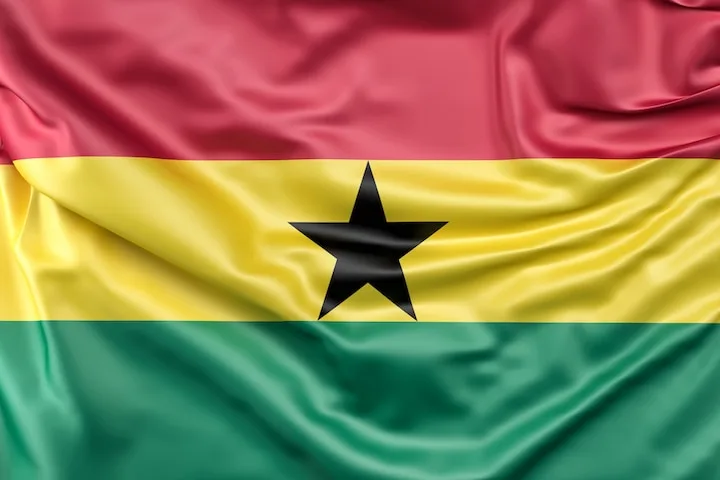As the vivid hues of red, yellow, and green cascade over the streets of Accra and beyond, Ghana is at a crossroads in its 67th Independence Day celebration. Beyond the facade of joyous parades and national flags taking place in Koforidua, Eastern Region, it is critical to reflect on the transition from colonialism to the vibrancy of an independent nation. Exploring the country’s journey, admitting recurring obstacles, and reflecting on the complex route ahead is necessary for informed advancement.
Facing Historical Realities
To map a course forward, a thorough assessment of the historical environment is essential. Ghana has been dubbed Africa’s bright star since it was the first country south of the Sahara to decolonize. Although they were worth writing home about due to some notable developments and achievements, the early years of independence were also chaotic, with economic difficulties and political turmoil.
Kwame Nkrumah, Ghana’s first President, was deposed nine years after independence. For the next 25 years, Ghana was ruled by military dictators, with diverse economic consequences. In 1992, the country reverted to democratic governance, and it has since established itself as a stable, liberal economy.
The transition to democracy prompted additional aid from the West, and Ghana’s economic recovery accelerated throughout President Rawlings’ eight-year presidency. In 2000, the ultimate test of Ghana’s fourth republic arrived. Term constraints prevented him from running for President a third time. The opposition party’s nominee, John A. Kufour, won the presidential election.
President Kufour spent the most of his presidency striving to improve Ghana’s economy and international reputation. He was reelected in 2004. In 2008, John Atta Mills was elected Ghana’s next President. He died in office in 2012 and was succeeded temporarily by his Vice President, John Dramani Mahama, who won the subsequent elections required by the constitution.
Nana Akufo-Addo, the primary opposition leader in Ghana, defeated President John Mahama in the 2016 general election. His win was due to his persuasiveness, as well as the support of his campaign mate, Dr. Mahamudu Bawumia, and his track record in advocating for citizens and opposing unpopular policies and taxes.
Ghanaians believed in him and expected him to elevate Ghana’s economic standing. However, after being sworn into power for the second time after the 2020 elections, Ghanaians started singing a different song. The issues have been overwhelming and many have migrated to the other side of the bridge, wondering what has changed about the current President. As we approach the 2024 elections in December, many questions arise, but the answers are limited. Will it get better?
Recognizing these realities is not an exercise in wallowing on the past, but rather a practical step toward making informed decisions. How have past challenges affected our present, and what lessons can we draw from them as we navigate a constantly changing global landscape?
Celebrating hievements
Ghana’s economic development, characterized by expansion and diversity, is a model for the West African region. By positioning itself as an economic powerhouse, the country has been able to draw in foreign investment and promote stability. Despite occasional difficulties, the political environment is very resilient, illustrating the development of democratic institutions. However, these successes need to be examined closely. For example, how inclusive is the economic growth, and is political stability resulting in real benefits for all Ghanaians?
As we celebrate economic growth, we also need to examine the systems that enable it. While the focus on entrepreneurship is praiseworthy, considerable thought should also be given to the growth’s inclusivity and sustainability. Are policies creating an environment that allows all Ghanaians to actively engage in and profit from the country’s economic landscape, regardless of their background? The equitable distribution of opportunities and resources is a key indicator of true economic empowerment, rather than GDP levels alone.
Advancements in healthcare, education, and gender equality showcase commendable progress. However, the persistence of disparities, especially in rural and marginalized communities, requires a recalibration of our social development strategies. How can we ensure that the benefits of progress reach every corner of the nation, leaving no one marginalized or excluded? The true measure of social progress lies not just in statistical improvements but in the tangible impact on the lives of ordinary Ghanaians.
The Road Ahead
Can we fix our eyes on the road ahead without evaluating our position? How can we even define where we are? What do we label the place we are in? I’ll sort it out later, but the point is that Ghanaians are complaining. Wait! That is an understatement. Ghanaians are wailing, but the administration led by President Nana Akuffo-Addo is not listening.
Many things are dragging us down, but the main ones are the massive public debt, the rapidly rising rate of inflation and devaluation of the Ghana Cedi relative to major international currencies, the rising rate of poverty and unemployment among young people, the threat of galamsey, corruption, electricity hurdles, and the imposition of numerous taxes. Who would have imagined that money in our pockets would be taxed in name of E-Levy? That’s where we’ve arrived, then.
Ghana’s future is at a crossroads. The road ahead is complicated, demanding a collective resolve to address multifaceted challenges and seize untapped opportunities. It requires a recalibration of our national compass, one that aligns economic goals with social justice and inclusivity.
The path forward demands a more nuanced approach to economic development, one that goes beyond GDP growth and permeates the local level. Economic development is important, but it should only be a means to a more equitable allocation of opportunities and resources. Policies must not only foster entrepreneurship but also dismantle barriers that hinder the full participation of all citizens. A recalibration of economic structures is imperative, with a focus on creating an ecosystem where every Ghanaian, regardless of socio-economic background, can contribute meaningfully to and benefit from the nation’s prosperity.
Particular emphasis should be placed on empowering local communities, moving on. Sustainable progress is rooted in community development, acknowledging the unique challenges faced by different regions. This involves targeted investments in infrastructure, education, and healthcare, ensuring that the benefits of progress are not concentrated in urban centers alone. The road ahead is one where rural communities thrive, bridging the urban-rural development gap and fostering a more balanced and resilient nation.
Education is a cornerstone on the road ahead. A strong educational system not only conveys knowledge but also fosters critical thinking, innovation, and a feeling of community duty. As we face the challenges of the future, investing in quality education becomes critical. This investment extends beyond formal classrooms to vocational training and skill development, preparing the youth for a rapidly changing job market and fostering a culture of lifelong learning.
In an era of fast technological innovations, the future requires a strategic embrace of technology. Beyond urban areas, technology can act as a bridge, linking isolated populations, providing access to information, and accelerating economic growth. The digitalization of critical services, together with investments in digital infrastructure, has the potential to democratize access and foster a more inclusive digital economy.
The success of the journey ahead lies not solely in the hands of policymakers but equally in the engagement of active citizens. Informed, engaged, and empowered citizens play a pivotal role in holding leaders accountable, shaping policies, and fostering a sense of collective responsibility. Civic participation extends beyond periodic elections; it involves ongoing dialogue, community involvement, and a commitment to the common good. The road ahead is paved by the footsteps of an active and vigilant citizenry.
Finally, as Ghana embarks on its next chapter, the path ahead requires a comprehensive and strategic approach. It is a path where economic prosperity intersects with social justice, local communities thrive, education becomes a source of empowerment, technology serves as an equalizer, and citizens actively shape their own destiny. The destination is not fixed; it arises from the collective decisions we make today on this winding path to a more affluent, inclusive, and resilient Ghana.
Happy Independence Day!




